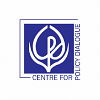Navigating in an inhospitable global and regional environment

This is final part of a series of articles based on the Centre for Policy Dialogue's (CPD) research on Bangladesh's graduation out of the LDC group. Read the first, second, third, fourth and fifth parts.
The global economy is experiencing a multitude of transitions in terms of economic and geopolitical rebalancing, ongoing technological change and emerging social and political risks. These transitions are expected to have far-reaching impacts on Bangladesh's economy, which is becoming increasingly integrated with the global and regional economies.
Bangladesh is expected to graduate from the least developed country (LDC) category in 2024, while maintaining access to LDC-specific international support measures until 2027. As Bangladesh braces for graduation and beyond, its strategies will need to be contextualised in this evolving global and regional order. To this end, pertinent issues such as declining availability of official development assistance (ODA), tepid global economic recovery and protectionist measures by developed countries, increasing automation and consequent labour market disruption, forfeiture of climate financing opportunities, rising terrorism and conflict, and proliferating illicit financial flows (IFFs) must be taken into cognisance.
These persistent and emerging global and regional challenges will have critical implications as Bangladesh prepares for the envisaged LDC graduation and smooth transition. In our experts' opinion survey, on average, all challenges were rated "high relevance" and "high impact," which corroborates the notion that the identified challenges are of foremost importance in Bangladesh's context.
The national policy towards graduation from the LDC category is only implicit in the Perspective Plan of Bangladesh for the 2010–21 period. The Seventh Five Year Plan for the 2016–20 period, which is the second phase of the Perspective Plan, does not include LDC graduation as a key milestone. Additionally, it does not outline an explicit smooth transition strategy. Against this backdrop, there is a need for a concrete LDC graduation strategy to facilitate the graduation process with momentum.
The following issues need to inform Bangladesh's renewed development strategy in the context of LDC graduation.
First, gaining such momentum requires shifting towards the production of higher value goods and services by increasing investment in the information and communications technology sector, diversifying exports and exporting higher-end products.
Second, in order to increase private investment in Bangladesh, the government needs to change the investment composition by focusing on infrastructure and the manufacturing sector through the establishment of special economic zones and export processing zones.
Third, improving the investment environment through financial sector reforms, tax and legal reforms, better governance and business regulations that attract investors is necessary.
Fourth, future economic growth prospects may depend on labour productivity. Adequate measures need to be taken to enhance human capital in the context of a changing demographic dividend.
Fifth, in addition to declining ODA, the quality of aid and attached terms and conditions must be considered as they may have developmental impacts on Bangladesh. Efforts towards strengthening domestic resource mobilisation must be carried out.
Sixth, better coordination among the many relevant stakeholders has become an urgency with regard to climate finance in Bangladesh. More transparency in project cycles and robust integrated data systems are mandatory for oversight and control of corruption in this area.
Seventh, removing non-tariff barriers will be particularly beneficial for Bangladesh, though the country's high transport costs may act as a bigger barrier than non-tariff barriers. Further, trade liberalisation needs to be strategised to support industrialisation including reforming the tariff regime to streamline effective protection levels.
Eighth, more effective communication and implementation by relevant ministries and strict monitoring are required for the government's efforts towards increasing regional connectivity and South-South cooperation.
Ninth, Bangladesh should evaluate its economic eligibility and political scope for applying to the European Union's Generalised System of Preferences plus scheme and assess opportunities for bilateral and multilateral negotiations on market access, including the Regional Comprehensive Economic Partnership and Free Trade Agreement of the Asia-Pacific.
Tenth, remittance inflows to Bangladesh are crucial as they enable socio-economic development at both national and household levels. To ensure remittance inflows through official channels and reduce associated costs, specific planning and effective implementation are necessary.
Eleventh, with regards to IFFs, more emphasis should be on trade misinvoicing through strict and effective measures by the National Board of Revenue including strengthening of the Transfer Pricing Cell. Besides, for effective result, a more coordinated approach is required by various government institutions including Bangladesh Bank, the National Board of Revenue, the Anti-Corruption Commission and the Ministry of Home Affairs.
And finally, terrorism at the grassroots level must be better addressed to ensure peace and thus enhance the country's economic growth prospects.
In conclusion, while preparing for LDC graduation and smooth transition, the government should emphasise not only reviewing the existing policy regime but also accelerating implementation of policies, plans, acts, strategies and initiatives. Domestically oriented efforts alone will not be enough as many of the pitfalls require coordinated global solutions. Going forward, Bangladesh must play a leading role in various global platforms pursuing LDCs' interests. Moreover, new alliances must be sought at the regional and global levels, particularly with the non-LDC lower middle-income country group. The success of Bangladesh's journey towards LDC graduation in the inhospitable external environment will hinge on its strategic planning and capacity to implement necessary actions in a timely manner.
Towfiqul Islam Khan is a research fellow and Muntaseer Kamal is a research associate at the Centre for Policy Dialogue (CPD).










Comments